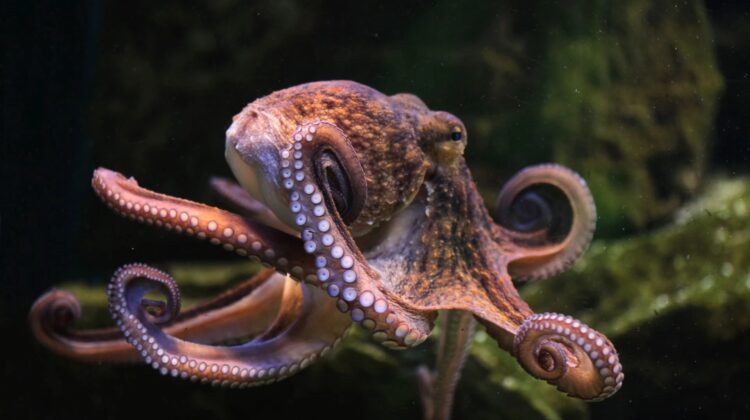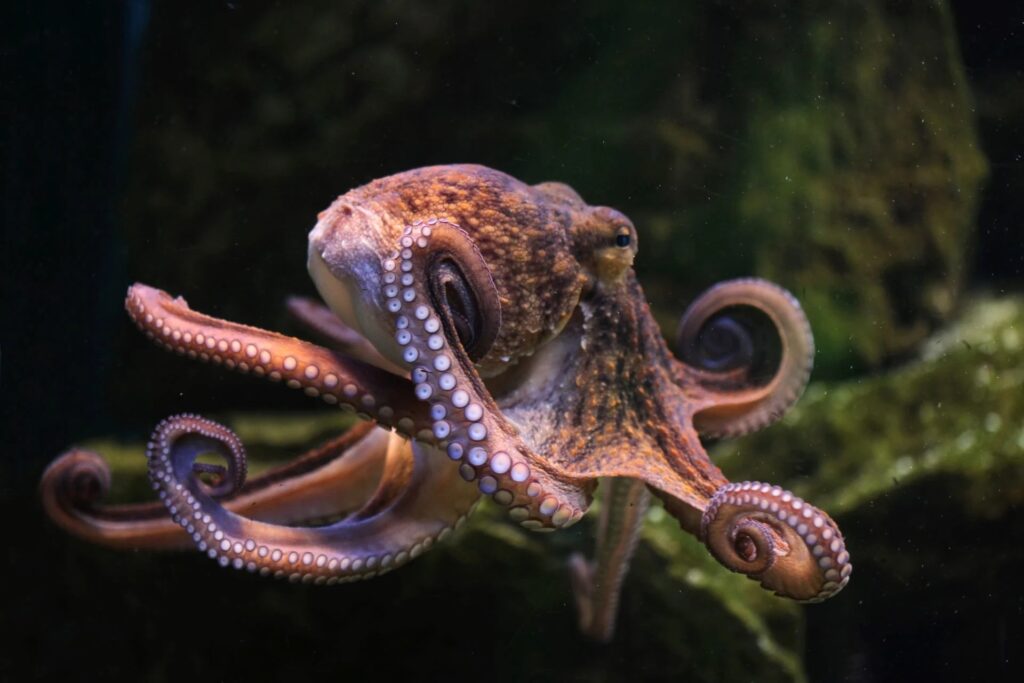
In a move that has ignited a firestorm of criticism, major fishing company Nueva Pescanova has unveiled plans to establish the world’s first octopus farm in the Canary Islands, aiming to annually farm and slaughter millions of these intelligent sea creatures. The shocking revelation has prompted outrage from animal rights advocates and conservationists alike.
The controversial project came to light when Eurogroup for Animals, an animal rights group, disclosed details to the BBC. The organization, acting as a vigilant watchdog, recently released a compelling video shedding light on the alarming initiative by Nueva Pescanova.

The Unprecedented Octopus Farming Venture
Nueva Pescanova’s ambitious plan seeks to revolutionize the octopus industry, potentially contributing to a staggering $318 million growth by 2025, as projected by Technavio, a market analysis site. The company’s proposed octopus farm would be a groundbreaking endeavor, attempting to overcome the challenges of successfully breeding and raising these creatures in captivity, a feat that has proven elusive until now.
Concerns Surrounding Octopus Farming
The proposal has triggered concerns primarily due to the high level of intelligence attributed to octopuses. Renowned for their cleverness, tool usage, and the ability to recognize individuals, these creatures have captivated biologists worldwide. The National Museum of London highlights eight surprising aspects of octopus abilities, including their capacity to experience pain and pleasure.
Critics argue that Nueva Pescanova’s plan involves confining the octopuses in crowded tanks, subjecting them to constant light and ultimately ending their lives through immersion in ice water, a process deemed by experts as slow and cruel. Peter Tse, a cognitive neuroscientist at Dartmouth University, expressed alarm, stating, “To kill them with ice would be a slow death… it would be very cruel and should not be allowed.”
Nueva Pescanova’s Defense and Environmental Impact
In response to mounting criticism, Nueva Pescanova asserts that sea life raised on its farms is treated humanely. The company, with a workforce of 12,000 across four continents, emphasizes its commitment to respecting the environment and local communities, as stated on its official website.
Proponents of the controversial project argue that increased hunting of wild octopuses has led to a decline in populations, and Nueva Pescanova’s strategy aims to address sustainability concerns.
Opposition and Calls for Action
Biologists closely monitoring the situation in the Canary Islands are actively campaigning against the octopus farm, expressing reservations about the ethical implications of confining these creatures in tanks. Lobbying efforts are underway to persuade Canary Islands authorities to ban the project, with certain grocers already refusing to sell sea life sourced from methods involving ice.
Elena Lara, associated with Compassion in World Farming, is among those leading the charge against the octopus farm. She contends that the initiative will “inflict unnecessary suffering on these intelligent, sentient, and fascinating creatures.”
In an attempt to mobilize public opinion, online petitions have surfaced, providing concerned individuals with a platform to join the collective effort aimed at putting an end to this contentious octopus farming venture. The unfolding controversy underscores the ongoing debate between economic interests and ethical considerations in the treatment of intelligent and sentient beings.

Leave a Reply